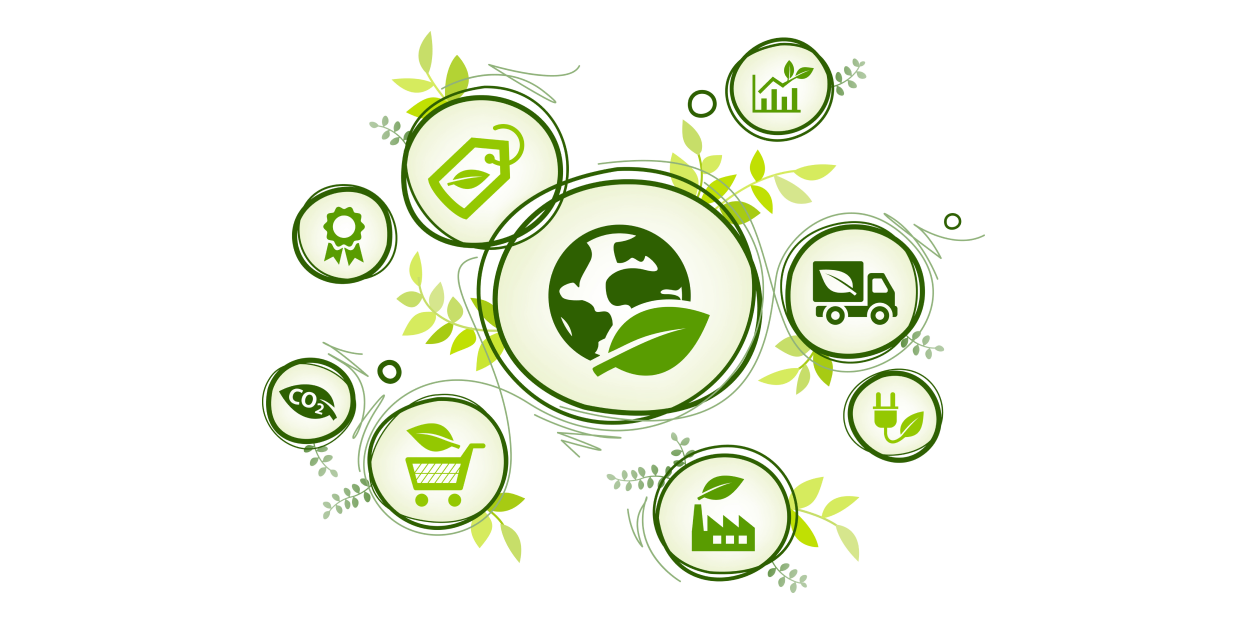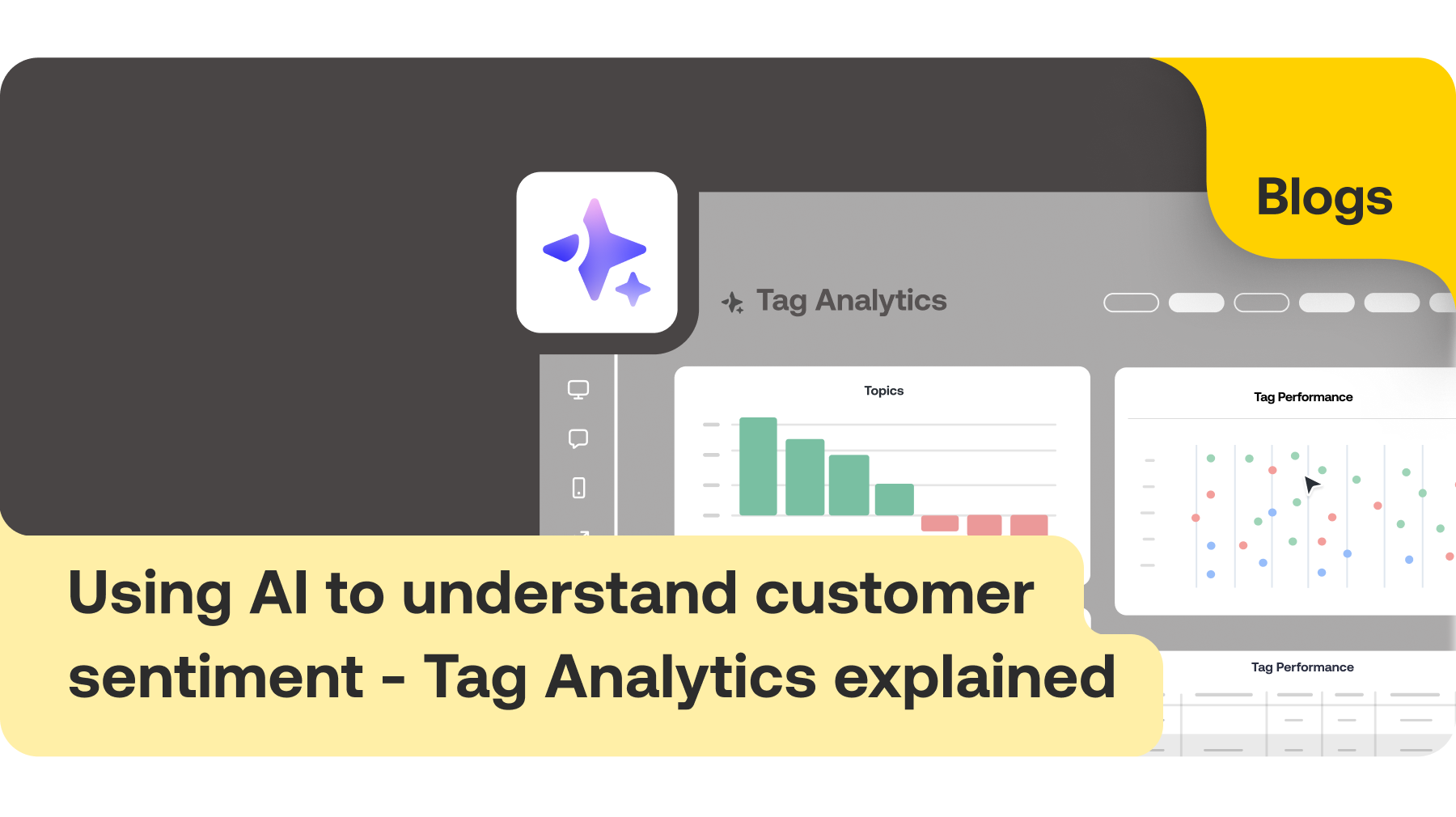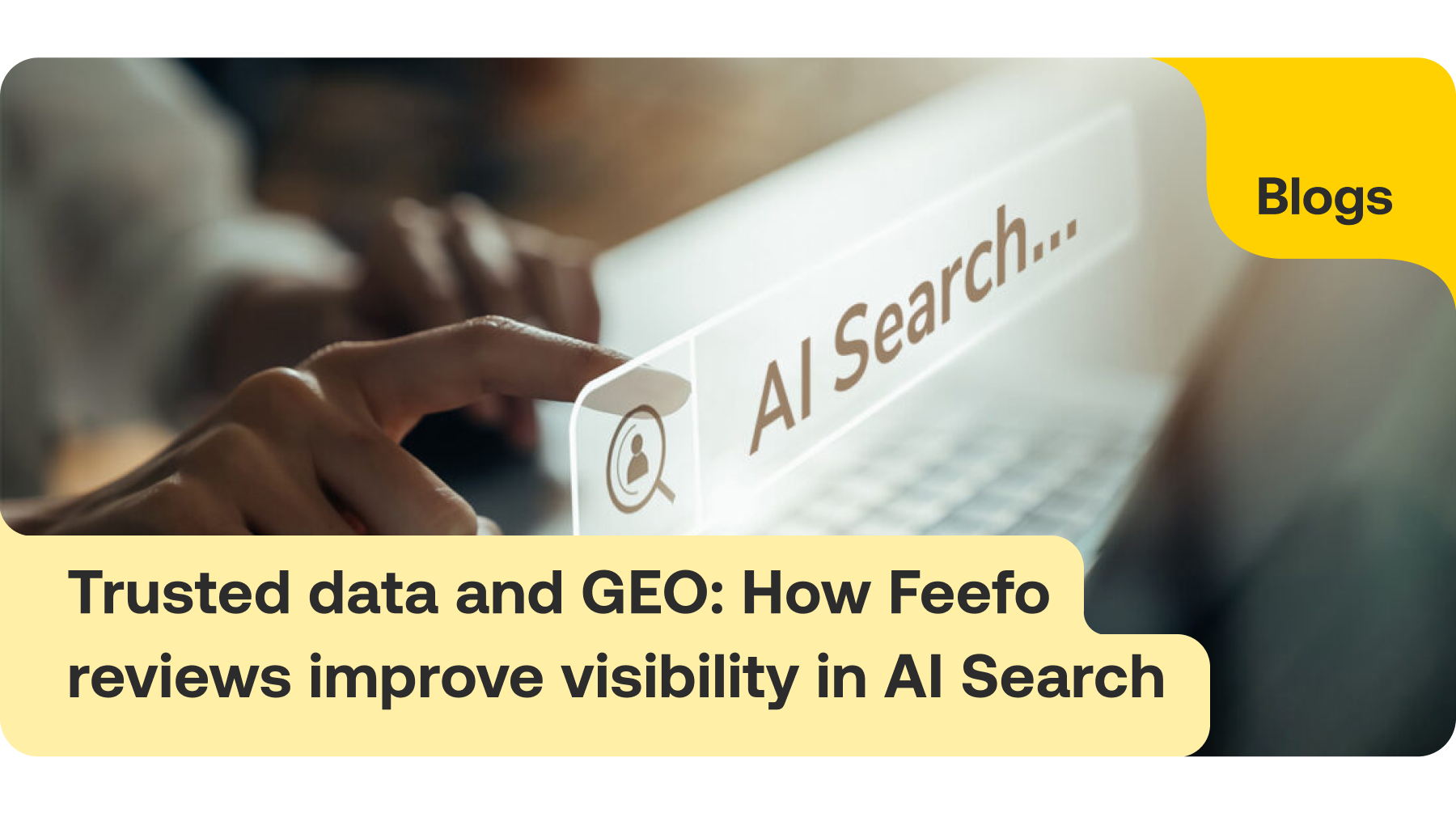Sustainability matters for businesses now more than ever. Consumers are becoming increasingly aware of the impact their purchasing decisions have on the environment. In 2025, companies face increasing pressure from customers, investors, and regulators to operate responsibly and minimise their environmental impact. Sustainable business practices can’t be ignored; they are essential for long-term success, helping organisations to reduce costs, attract loyal customers, and build a trusted brand.
Key takeaways
Sustainability is essential in 2025: Consumers, investors, and regulators expect measurable environmental action; it’s key to long-term growth and brand trust.
Sustainable practices deliver value: From lowering costs to building loyalty and attracting investment, sustainability makes smart business sense.
Don’t risk greenwashing: Misleading claims can lead to major fines, reputational damage, and customer loss; honesty and transparency are critical.
Verification earns trust: Independent validation like Feefo’s Sustainability Awareness Solutions can reassure customers and support compliance.
Feefo Ecolabels build credibility: Verified Ecolabels in areas like Clean Planet and Responsible Resource Usage and Production help businesses stand out and prove their efforts.
Treefo connects feedback with real impact: Donate funds to tree planting projects for every verified review you collect, boosting customer engagement and showcasing your commitment to the environment.
What is business sustainability?
Business sustainability refers to decisions that balance profit with positive environmental and social outcomes. Consumers are actively seeking out brands that demonstrate real commitment to sustainability, and they are quick to spot – and avoid – businesses that fall short. That’s why leading companies are embedding sustainability into every part of their operations, from supply chain management to customer engagement.
Why sustainability matters: Key business benefits
While there are costs associated with sustainable business practices, with consumers demanding to know more about eco-friendly operations, there’s more at stake if businesses ignore their obligations. Benefits of sharing your sustainability commitments include:
Cost savings: Putting energy efficiency, waste reduction, and resource conservation first isn’t just for the environment; they can all help to lower operational expenses, which can contribute to improving your bottom line.
Customer acquisition and retention: Our Consumer Benchmark report found that customers who mention sustainability in their reviews are twice as likely to buy again, and three times more likely to become a frequent buyer. That means prioritising sustainability and being clear with customers about what you’re doing is likely to pay dividends in the longer term.
Brand reputation: A visible commitment to sustainability can enhance your brand’s profile, and help you to stand out from your competitors. Enhanced brand reputation doesn’t just apply to customers though; many investors are also looking for companies that focus on sustainability, as they see it as a sign of good corporate governance and long-term financial stability.
Employee engagement: Don’t forget that your team are consumers too – and chances are, they are interested and invested in the environment. By building enthusiasm within the team for your sustainability initiatives, you’ll save more on operational expenses and be able to share your activities in your marketing.
Regulatory compliance: As environmental regulations evolve, going above and beyond current requirements means that you’ll be ahead as new laws are introduced – ensuring the transitions are easier and reducing the risk of fines for non-compliance.
What is greenwashing?
Greenwashing is making false or misleading claims about your business’s environmental practices. Even over-stating what you’re currently doing can seriously damage trust, breach consumer protection laws, and lead to regulatory penalties.
What are the risks of greenwashing?
The main risk businesses are likely to be concerned with? Monetary fines. And there are significant fines being handed out where businesses have acted inappropriately or overstated their claims.
To date, the biggest fines for green-washing have been imposed Volkswagen, which used software to falsify data and evade vehicle emissions tests. Outcomes of lawsuits worldwide have cost the company $34.69 billion so far, with ongoing cases in the UK scheduled to go to trial in October 2025.
It isn’t just the automotive industry that are being penalised for over-stating their eco-credentials. Other examples include:
- H&M and Decathlon have been reprimanded for making unsubstantiated claims on their labels and have made donations of $430.5k and $530k respectively “to compensate for their use of unclear and insufficiently substantiated sustainability claims.”
- Goldman Sachs received a $4 million penalty for failing to follow ESG investment policies and misleading its customers.
- Energy company Eni received a $5.6 million fine for making claims about palm oil diesel being ‘green’.
Aside from the potential of receiving fines that could destroy your business, risks of greenwashing – that can also add up to a huge hit on your finances – can include:
Loss of consumer trust: Misleading environmental claims can damage reputation and lead to public backlash. The first place they’ll complain? On the reviews they leave for you,
Brand damage: Negative press and social media exposure can permanently harm brand image.
Customer attrition: Research from KPMG showed that 54% of consumers would stop buying from a company if they were found to have been misleading in their sustainability claims. That means that eco-conscious consumers are likely to switch to genuinely sustainable competitors, reducing the number of sales you make.
Employee morale: Employees may feel disillusioned working for a company that misrepresents its values, leaving you with additional recruitment and training costs.
Long-term costs: Short-term image boosts are outweighed by long-term reputational and potential legal consequences.
Missed innovation opportunities: Focusing on appearance over real sustainability can hinder true progress and innovation.
How can businesses avoid claims of greenwashing?
It is clear that keeping your sustainability efforts credible and transparent is essential. If you’re making strides when it comes to sustainability, it makes sense to let others know about it – whether that be customers, clients, investors, or employees. But with 57% of UK consumers feeling that companies actively hide information about their environmental, social and economic impact, how can you convince them?
Best practices for avoiding greenwashing include:
Be transparent and specific: Clearly define what sustainability means for your business. Even if you’re at the start of your journey, being honest about the steps you are taking will go further than making vague “eco-friendly” or “green” claims. Use precise language, and explain the specific actions or standards your business meets, such as “100% recycled materials certified by [the recognised body you work with]”.
Support your claims with data: Ensure your environmental claims are backed by credible, independently verified data. Use third-party certifications, such as Fairtrade, FSC, or ISO to substantiate your statements and reassure customers of their validity.
Know your supply chain: Disclose the origins of materials, manufacturing processes, and the environmental impact of your supply chain. Regularly audit suppliers and partners to ensure their practices align with your sustainability commitments.
Regularly update your marketing: Continuously monitor your sustainability performance and update your claims to reflect current practices and achievements. Independent audits and transparent reporting help maintain accuracy and compliance with evolving regulations.
Educate and train your team: Ensure everyone knows and understands the importance of honest sustainability claims and is familiar with relevant regulatory guidelines.
How Feefo can help prove your sustainability as a business
With major legislation and reports concerning sustainability being released regularly, including the Intergovernmental Panel on Climate Change (IPCC) report and the United Nations Sustainable Development Goals (SDGs), plus consumer scepticism, and the benefits of being sustainable, businesses need to stay ahead.
But staying ahead of sustainability goals can take a lot of resources – which, as much as you care, you simply might not have available to invest, especially in small businesses. That’s why, as a recognised verified review platform, we’re taking action to help businesses to prove their sustainability. And because we’re independent, when you display information about them in your marketing, consumers can trust that you’re not overstating your claims.
If you’re already a good way into your environmental efforts, our Sustainability Awareness Solution is a great way to demonstrate the positive steps you’re taking. We’ll work with you to ensure you meet the requirements, then you’ll be able to display our Ecolabel badges across your website, in your communications with customers, and on your social media.
Feefo’s Sustainability Awareness Solutions: Ecolabels
Feefo is known and respected for its verified reviews. Now we offer sustainability verification too, in the form of Ecolabels. Developed in partnership with sustainability experts at Ethy, our ecolabels provide independent verification and clear, consumer-friendly badges that showcase your genuine environmental and social achievements.
What are Feefo Ecolabels?
Ecolabels are a series of recognisable badges awarded to businesses for meeting rigorous sustainability criteria, each mapped to a United Nations Sustainable Development Goal. With more than 40 ecolabels available, businesses can highlight their verified progress across six core areas of sustainability:
- Stable Climate: For actions that reduce carbon emissions, use renewable energy, or achieve carbon neutrality.
- Clean Planet: For waste reduction, recycling, and responsible resource management to protect ecosystems and human health.
- Responsible Resource Use and Production: For ethical sourcing, efficient production, and minimising environmental impact throughout the supply chain.
- Healthy People: For prioritising customer and employee wellbeing, such as using non-toxic ingredients and promoting safe, healthy environments.
- Thriving Communities: For supporting local communities, promoting equality, charitable giving, fair trade, and empowering employees.
- Protecting Biodiversity and Animal Welfare: For initiatives like cruelty-free practices, vegan products, and supporting biodiversity.
How does the accreditation work?
The process is straightforward and supportive. Businesses collaborate with the Feefo team to select the most relevant ecolabels, submit evidence for each claim, and undergo an independent assessment. Once accredited, you can display your ecolabels across your website, packaging, and marketing materials, building trust with conscious consumers and standing out from competitors.
Why choose Feefo’s Ecolabels?
- Build Consumer Trust: Verified ecolabels cut through greenwashing, offering transparent proof of your sustainability achievements.
- Drive Brand Differentiation: Stand out in a crowded market by showcasing your commitment to the UN Sustainable Development Goals.
- Flexible and Accessible: Most businesses receive between three and eight ecolabels, and the process is tailored to your sector and size.
- Ongoing Support: Ecolabels are valid for 24 months, with support for reassessment and updates to reflect your ongoing progress.
Feefo’s Sustainability Awareness Solution gives you the tools and credibility to communicate your sustainability journey clearly and effectively. This can help you attract conscious shoppers, strengthen your reputation, and engage employees and stakeholders.
Feefo’s Sustainability Awareness Solutions: Treefo
Treefo is Feefo’s innovative tree planting solution, designed to help businesses make a measurable, positive impact on the environment while engaging customers in sustainability. With Treefo, companies can plant trees for every verified customer review they receive, turning customer feedback into real-world climate action.
This seamless integration allows businesses to showcase their environmental commitment directly within the Feefo platform, providing transparent reporting on the number of trees planted and the resulting carbon offset. Treefo not only supports global reforestation efforts but also enhances your brand’s reputation by demonstrating authentic, ongoing sustainability initiatives.
By adopting Treefo, your business can:
Engage customers: Show customers their feedback leads to tangible environmental benefits, increasing loyalty and satisfaction.
Demonstrate impact: Access clear data and reporting to communicate your achievements, such as trees planted and CO₂ offset, to stakeholders and the public.
Stand out: Differentiate your brand with a visible, credible sustainability action that goes beyond words and delivers real results.
Increase response rates: While providing incentives for leaving reviews is generally considered unethical, and penalised on many eCommerce platforms, Treefo is different. As there is no monetary reward for customers that leave reviews with Treefo – just a nice feeling that they’ve done something to make a small difference to the environment.
How Totality Services turns feedback into trees
Totality Services, a leading London-based IT support provider, adopted Treefo as part of their commitment to ESG goals and environmental responsibility. After integrating Feefo and Treefo, Totality Services saw a 25% increase in revenues and achieved a 50% conversion rate, while consistently earning excellent customer reviews and the Feefo Platinum Trusted Service Award. By pledging to plant a minimum of 50 trees every month for verified feedback, they strengthened their brand reputation and motivated more clients to leave reviews, supporting both business growth and environmental impact. Their experience demonstrates how Treefo can be seamlessly implemented to fulfil ESG targets, engage customers, and make a real difference for the planet.
What can businesses do next for their sustainability journey?
If you’re already a Feefo customer, then simply get in touch with your Customer Success Manager who will be able to talk you through the best options for your business and get you started.
For businesses that aren’t yet collecting customer feedback, are using a different review platform, or haven’t yet started to collect reviews:
- Read more about Treefo and how it benefits tree planting projects worldwide
- Discover which Ecolabels suit your business and which you can work towards
- Find out more about Feefo’s features and how they can help you achieve more
Complete the form on our contact page and we’ll be in touch, or simply call us on 0203 362 4209.



